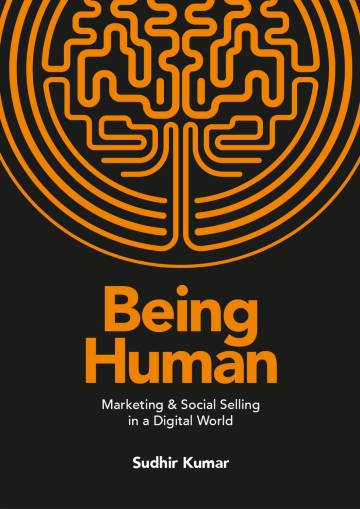
Introduction
Employee Advocacy isn’t just a corporate buzzword anymore; it’s a strategic approach that transforms how firms connect with their audience and enhance brand credibility. In today’s competitive landscape, where authenticity and trust are paramount, having a team of dedicated employee advocates can be the X-factor that sets your company apart from the rest.
But how do you identify and nurture these ideal advocates? And what are the strategic benefits? Let’s explore this in the following blog.
Index
- Strategic Benefits of Employee Advocacy
- Qualities of an Ideal Employee Advocate
- Social Media Savvy
- Thought Leader
- Consistent Performer
- Team Player
- Growth Mindset
- Intrinsically Motivated
- Excellent Communicator
- Empathetic and Customer-Centric
- Adaptable
- Trustworthy
- Passionate
- Finding Your Ideal Employee Advocates
- Internal Surveys and Feedback to Identify Interests
- Social Media Audit of Potential Advocates
- Leadership Buy-In
- Training and Education – Enabling Advocates
- Recognition and Incentives – Gamify the Process
- Feedback and Iteration – Ensuring Sustainability of the Program
- Conclusion
Strategic Benefits of Employee Advocacy
Employee advocacy offers a multitude of benefits for both firms and the advocates themselves.
Enhanced Brand Reach and Visibility
- Employee advocates have the power to amplify your brand message, reaching audiences that traditional marketing efforts may not penetrate.
- In fact, brand messages shared by employees reach 561% further than the same messages shared by the brand’s official social channels.
Increased Employee Engagement and Satisfaction
- Employees who are involved in their company are more likely to become the voice of the company as brand advocates.
- Employee advocacy programs provide employees with a sense of purpose and belonging, leading to greater levels of job satisfaction and morale.
- Research from Gallup has proven that companies with high levels of employee engagement outperform others in earnings per share.
Improved Brand Credibility and Trust
- Consumers are more likely to trust recommendations from people they know than traditional ads.
- By leveraging the authentic voice of employee advocates, brands can build credibility and trust with their audience.
- A study by Edelman found that 63% of consumers trust information from people (company employees) more than from the CEO.
Cost-Effective Marketing Strategy
- Employee advocacy is a cost-effective way to promote the brand and generate leads.
- Unlike traditional marketing, where significant financial investment is needed, employee advocacy uses the power of the existing workforce to spread brand messages organically, resulting in increased web traffic and leads.
Now that we’ve outlined the strategic benefits of employee advocacy let’s delve into the qualities that make an ideal employee advocate.
Qualities of an Ideal Employee Advocate
Much like the combination of 11 players forming a cricket team, the following 11 qualities make an ideal employee advocate:
-
Thought Leader
Employee advocates have the potential to evolve into thought leaders within their fields, extending beyond mere brand promotion. Such ideal advocates embody deep industry expertise, offering invaluable insights and serving as trusted authorities within their professional communities.
Employee advocacy programs serve as the incubation facility to nurture thought leadership among ideal advocates, especially those equipped with strong domain knowledge. With proper training and consistent engagement on professional circles in LinkedIn and other social media channels, these advocates can effectively position themselves as thought leaders.
A profile example: A cybersecurity analyst actively contributes to industry forums, sharing expertise on cybersecurity best practices and emerging technologies. Such proactive engagement not only enhances the individual’s profile but also elevates them as a respected voice within the cybersecurity community.
-
Consistent Performer
Consistent and reliable performance is a hallmark of an ideal employee advocate. Such individuals exceed expectations and demonstrate a strong ethic at work. With an adequate push, they can also produce high-quality content, engage with their audience, and take the brand’s message to a wider reach as brand advocates.
A profile example: A sales representative who consistently meets or exceeds sales targets and receives positive client feedback exemplifies consistent performance.
-
Team Player
Collaboration is key to employee advocacy. Ideal advocates are team players who uphold a sense of cooperation and support within their organization. They willingly share knowledge and assistance with colleagues and contribute to the team’s overall success.
A profile example: A product manager who shares success stories from the sales and tech teams and offers constructive feedback on their content.
-
Growth Mindset
An ideal employee advocate embraces a growth mindset and continually seeks learning, development, and improvement opportunities. Such individuals are open to feedback, flexible to changes, and actively pursue professional and personal growth.
A profile example: A senior software developer who proactively seeks training opportunities on the latest tech, attends industry conferences, and brings innovation based on their learnings and experiences.
-
Intrinsically Motivated
Motivation is the driving force behind any effective employee advocacy program. An ideal advocate is intrinsically motivated, driven by the urge to excel in a task for their own sake rather than external rewards. Such individuals exhibit outstanding performance that fosters personal and collective growth. Examples include pride in one’s work, earning respect from peers and supervisors, personal development, increased trust from managers, enjoying the work itself, a sense of achievement, and expanding skills and knowledge.
A profile example: A graphic designer who eagerly volunteers to create visually compelling content for the advocacy program, driven by a passion for design and creativity.
-
Excellent Communicator
Effective advocacy requires strong communication skills, both written and verbal. An ideal advocate should be able to articulate the brand’s message clearly and persuasively in all ways, including social media posts, presentations, and one-on-one interactions.
A profile example: A marketing associate who excels in writing compelling email newsletters, delivering engaging presentations, and engaging in meaningful conversations with clients.
-
Empathetic and Customer-Centric
Employee advocates should ideally demonstrate empathy towards the audience and understand their needs, challenges, and preferences. They should be able to tailor their messaging and content to resonate with different audience segments in their social media circles to stay relevant.
A profile example: A customer success associate who actively listens to customer feedback, addresses their concerns with empathy, and offers personalized solutions exhibits empathetic qualities.
-
Adaptable
In today’s fast-paced business environment, adaptability is essential. An ideal advocate should be able to pivot quickly in response to changes in the business environment. Such individuals embrace innovation and change and thrive in ambiguity.
A profile example: A project manager who successfully leads cross-functional teams through complex projects, adapting to evolving requirements and priorities.
-
Trustworthy
Trust forms the cornerstone of an effective advocacy program. Ideal advocates are seen as trustworthy and reliable by their peers and the broader audience. They uphold ethical standards, maintain confidentiality when needed, and act with integrity at all times.
A profile example: A sales manager who builds strong client relationships based on trust, honesty, and transparency.
-
Passionate
Lastly, ideal advocates should be passionate about the brand and its mission. Their enthusiasm and commitment should be reflected in their advocacy efforts, which should create awareness and attract more followers for the brand.
A profile example: A customer success manager who goes above and beyond to delight customers, driven by their passion for delivering exceptional service and making a positive impact.
To truly harness the potential of employee advocacy, it’s essential to identify individuals within an organization who embody the above ideal qualities.
Finding Your Ideal Employee Advocates
Now that we’ve identified the qualities of an ideal employee advocate, here’s how you can find and nurture such individuals:
Internal Surveys and Feedback to Identify Interests
- Start with internal surveys and feedback sessions to gauge employee interest in participating in an advocacy program.
Social Media Audit of Potential Advocates
- Conduct a comprehensive audit of all employees’ social media profiles to identify those who are already active and engaged on social platforms.
- Identify individuals who exhibit the qualities of an ideal advocate and demonstrate a genuine passion for the brand’s values and messaging.
Leadership Buy-In
- Secure buy-in from senior leadership and department heads to ensure widespread adoption and participation in the advocacy program.
- Encourage leaders to participate in advocacy activities and lead by example actively.
Training and Education – Enabling Advocates
- Provide training and educational resources to equip advocates with the knowledge and skills they need to transform into effective employee advocates.
- Offer workshops on social media best practices, tips and tricks for content creation, brand messaging, and personal branding.
Recognition and Incentives – Gamify the Process
- Recognize and reward advocates for their contributions to the program to foster a culture of appreciation and recognition.
- Be it through recognition and appreciation via shoutouts in company newsletters and social media posts, exclusive perks, monetary incentives, or newer professional and skill development opportunities, make sure advocates feel valued and appreciated for their efforts.
Feedback and Iteration – Ensuring Sustainability of the Program
- Continuously monitor and evaluate the program’s effectiveness.
- Ask for feedback from advocates to understand what’s working well and where there’s room for improvement.
- The collective feedback can be used to refine the advocacy program, ensuring its ongoing success and sustenance.
By taking a SMART and strategic approach to employee advocacy and investing in the development of your ideal advocates, you can unlock the full potential of your workforce and drive meaningful results for your organization.
Conclusion
Employee advocacy is a powerful strategy for building brand awareness, credibility, and trust in today’s digital age. By finding and nurturing your ideal employee advocates, you can leverage the collective power of your workforce to amplify your brand message and drive meaningful results cost-effectively.
It’s not just about finding the ideal advocates; it’s about empowering them to become the voice and evergreen champions of your brand. With the right approach and a focus on nurturing key qualities like thought leadership, social media savviness, consistency, teamwork, growth mindset, and motivation, you can build a formidable army of employee advocates who can take your brand to new heights.
Take the first step today and embark on the journey to finding your ideal employee advocates with our dedicated program support. For more details, visit Socxo.























